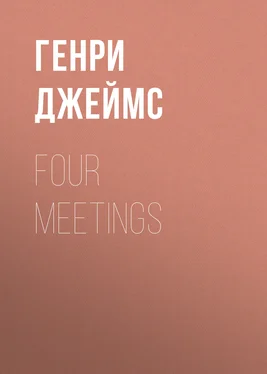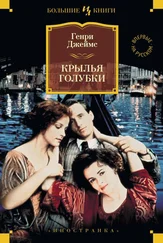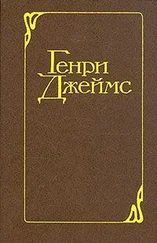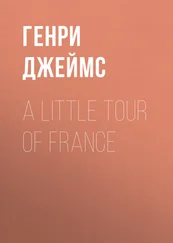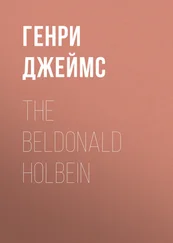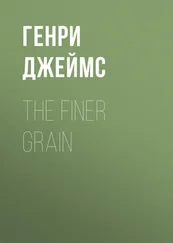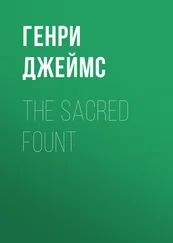Генри Джеймс - Four Meetings
Здесь есть возможность читать онлайн «Генри Джеймс - Four Meetings» — ознакомительный отрывок электронной книги совершенно бесплатно, а после прочтения отрывка купить полную версию. В некоторых случаях можно слушать аудио, скачать через торрент в формате fb2 и присутствует краткое содержание. Жанр: foreign_prose, foreign_antique, на английском языке. Описание произведения, (предисловие) а так же отзывы посетителей доступны на портале библиотеки ЛибКат.
- Название:Four Meetings
- Автор:
- Жанр:
- Год:неизвестен
- ISBN:нет данных
- Рейтинг книги:4 / 5. Голосов: 1
-
Избранное:Добавить в избранное
- Отзывы:
-
Ваша оценка:
- 80
- 1
- 2
- 3
- 4
- 5
Four Meetings: краткое содержание, описание и аннотация
Предлагаем к чтению аннотацию, описание, краткое содержание или предисловие (зависит от того, что написал сам автор книги «Four Meetings»). Если вы не нашли необходимую информацию о книге — напишите в комментариях, мы постараемся отыскать её.
Four Meetings — читать онлайн ознакомительный отрывок
Ниже представлен текст книги, разбитый по страницам. Система сохранения места последней прочитанной страницы, позволяет с удобством читать онлайн бесплатно книгу «Four Meetings», без необходимости каждый раз заново искать на чём Вы остановились. Поставьте закладку, и сможете в любой момент перейти на страницу, на которой закончили чтение.
Интервал:
Закладка:
Henry James
Four Meetings
I saw her only four times, but I remember them vividly; she made an impression upon me. I thought her very pretty and very interesting,—a charming specimen of a type. I am very sorry to hear of her death; and yet, when I think of it, why should I be sorry? The last time I saw her she was certainly not—But I will describe all our meetings in order.
I
The first one took place in the country, at a little tea-party, one snowy night. It must have been some seventeen years ago. My friend Latouche, going to spend Christmas with his mother, had persuaded me to go with him, and the good lady had given in our honor the entertainment of which I speak. To me it was really entertaining; I had never been in the depths of New England at that season. It had been snowing all day, and the drifts were knee-high. I wondered how the ladies had made their way to the house; but I perceived that at Grimwinter a conversazione offering the attraction of two gentlemen from New York was felt to be worth an effort.
Mrs. Latouche, in the course of the evening, asked me if I “did n’t want to” show the photographs to some of the young ladies. The photographs were in a couple of great portfolios, and had been brought home by her son, who, like myself, was lately returned from Europe. I looked round and was struck with the fact that most of the young ladies were provided with an object of interest more absorbing than the most vivid sun-picture. But there was a person standing alone near the mantelshelf, and looking round the room with a small gentle smile which seemed at odds, somehow, with her isolation. I looked at her a moment, and then said, “I should like to show them to that young lady.”
“Oh, yes,” said Mrs. Latouche, “she is just the person. She doesn’t care for flirting; I will speak to her.”
I rejoined that if she did not care for flirting, she was, perhaps, not just the person; but Mrs. Latouche had already gone to propose the photographs to her.
“She’s delighted,” she said, coming back. “She is just the person, so quiet and so bright.” And then she told me the young lady was, by name, Miss Caroline Spencer, and with this she introduced me.
Miss Caroline Spencer was not exactly a beauty, but she was a charming little figure. She must have been close upon thirty, but she was made almost like a little girl, and she had the complexion of a child. She had a very pretty head, and her hair was arranged as nearly as possible like the hair of a Greek bust, though indeed it was to be doubted if she had ever seen a Greek bust. She was “artistic,” I suspected, so far as Grimwinter allowed such tendencies. She had a soft, surprised eye, and thin lips, with very pretty teeth. Round her neck she wore what ladies call, I believe, a “ruche,” fastened with a very small pin in pink coral, and in her hand she carried a fan made of plaited straw and adorned with pink ribbon. She wore a scanty black silk dress. She spoke with a kind of soft precision, showing her white teeth between her narrow but tender-looking lips, and she seemed extremely pleased, even a little fluttered, at the prospect of my demonstrations. These went forward very smoothly, after I had moved the portfolios out of their corner and placed a couple of chairs near a lamp. The photographs were usually things I knew,—large views of Switzerland, Italy, and Spain, landscapes, copies of famous buildings, pictures, and statues. I said what I could about them, and my companion, looking at them as I held them up, sat perfectly still, with her straw fan raised to her underlip. Occasionally, as I laid one of the pictures down, she said very softly, “Have you seen that place?” I usually answered that I had seen it several times (I had been a great traveller), and then I felt that she looked at me askance for a moment with her pretty eyes. I had asked her at the outset whether she had been to Europe; to this she answered, “No, no, no,” in a little quick, confidential whisper. But after that, though she never took her eyes off the pictures, she said so little that I was afraid she was bored. Accordingly, after we had finished one portfolio, I offered, if she desired it, to desist. I felt that she was not bored, but her reticence puzzled me, and I wished to make her speak. I turned round to look at her, and saw that there was a faint flush in each of her cheeks. She was waving her little fan to and fro. Instead of looking at me she fixed her eyes upon the other portfolio, which was leaning against the table.
“Won’t you show me that?” she asked, with a little tremor in her voice. I could almost have believed she was agitated.
“With pleasure,” I answered, “if you are not tired.”
“No, I am not tired,” she affirmed. “I like it—I love it.”
And as I took up the other portfolio she laid her hand upon it, rubbing it softly.
“And have you been here too?” she asked.
On my opening the portfolio it appeared that I had been there. One of the first photographs was a large view of the Castle of Chillon, on the Lake of Geneva.
“Here,” I said, “I have been many a time. Is it not beautiful?” And I pointed to the perfect reflection of the rugged rocks and pointed towers in the clear still water. She did not say, “Oh, enchanting!” and push it away to see the next picture. She looked awhile, and then she asked if it was not where Bonnivard, about whom Byron wrote, was confined. I assented, and tried to quote some of Byron’s verses, but in this attempt I succeeded imperfectly.
She fanned herself a moment, and then repeated the lines correctly, in a soft, flat, and yet agreeable voice. By the time she had finished she was blushing. I complimented her and told her she was perfectly equipped for visiting Switzerland and Italy. She looked at me askance again, to see whether I was serious, and I added, that if she wished to recognize Byron’s descriptions she must go abroad speedily; Europe was getting sadly dis-Byronized.
“How soon must I go?” she asked.
“Oh, I will give you ten years.”
“I think I can go within ten years,” she answered very soberly.
“Well,” I said, “you will enjoy it immensely; you will find it very charming.” And just then I came upon a photograph of some nook in a foreign city which I had been very fond of, and which recalled tender memories. I discoursed (as I suppose) with a certain eloquence; my companion sat listening, breathless.
“Have you been very long in foreign lands?” she asked, some time after I had ceased.
“Many years,” I said.
“And have you travelled everywhere?”
“I have travelled a great deal. I am very fond of it; and, happily, I have been able.”
Again she gave me her sidelong gaze. “And do you know the foreign languages?”
“After a fashion.”
“Is it hard to speak them?”
“I don’t believe you would find it hard,” I gallantly responded.
“Oh, I shouldn’t want to speak; I should only want to listen,” she said. Then, after a pause, she added, “They say the French theatre is so beautiful.”
“It is the best in the world.”
“Did you go there very often?”
“When I was first in Paris I went every night.”
“Every night!” And she opened her clear eyes very wide. “That to me is:—” and she hesitated a moment—“is very wonderful.” A few minutes later she asked, “Which country do you prefer?”
“There is one country I prefer to all others. I think you would do the same.”
She looked at me a moment, and then she said softly, “Italy?”
“Italy,” I answered softly, too; and for a moment we looked at each other. She looked as pretty as if, instead of showing her photographs, I had been making love to her. To increase the analogy, she glanced away, blushing. There was a silence, which she broke at last by saying,—
Читать дальшеИнтервал:
Закладка:
Похожие книги на «Four Meetings»
Представляем Вашему вниманию похожие книги на «Four Meetings» списком для выбора. Мы отобрали схожую по названию и смыслу литературу в надежде предоставить читателям больше вариантов отыскать новые, интересные, ещё непрочитанные произведения.
Обсуждение, отзывы о книге «Four Meetings» и просто собственные мнения читателей. Оставьте ваши комментарии, напишите, что Вы думаете о произведении, его смысле или главных героях. Укажите что конкретно понравилось, а что нет, и почему Вы так считаете.
